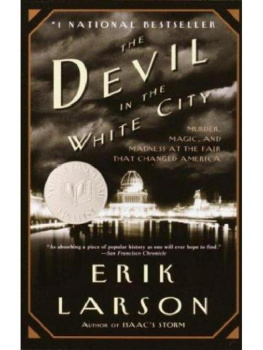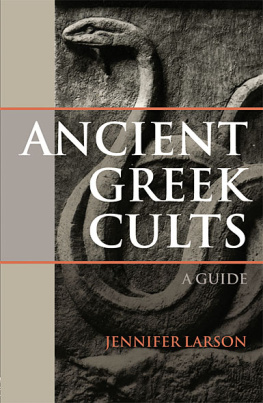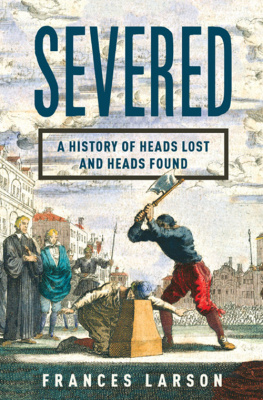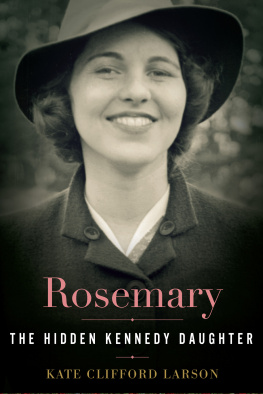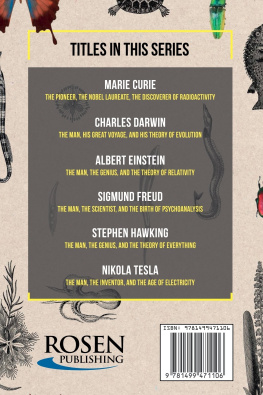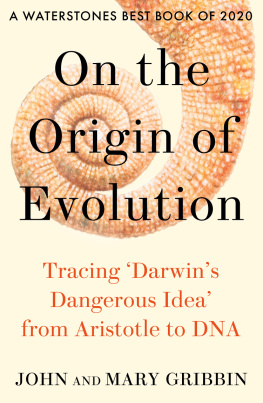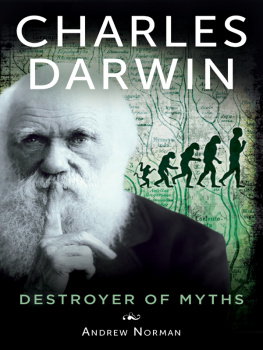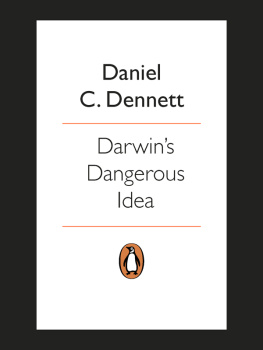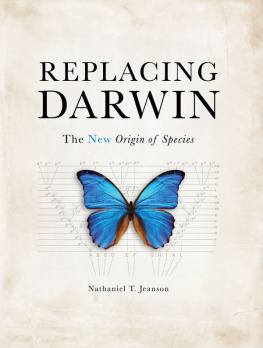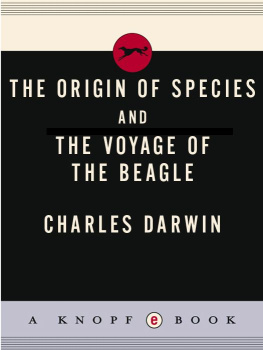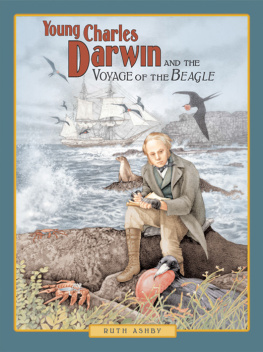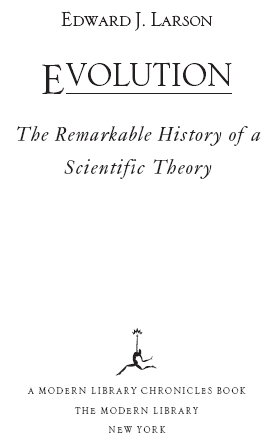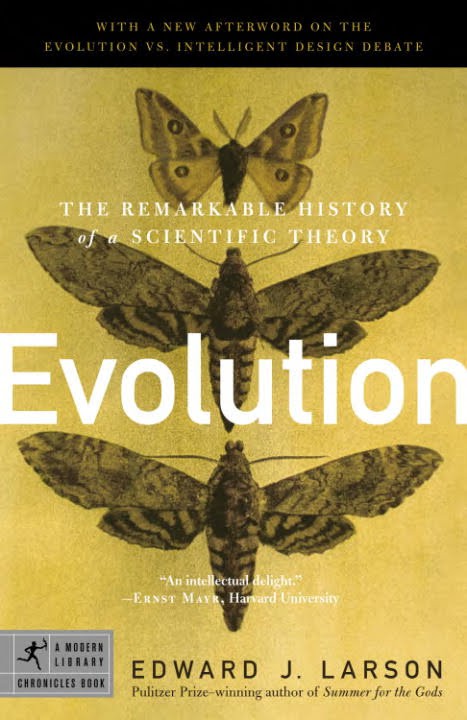
C ONTENTS
T O
ERNST MAYR
IN COMMEMORATION OF HIS
100 TH B IRTHDAY
J ULY 5, 2004
A REMARKABLE LIFE IN SERVICE OF SCIENCE
L IST OF I LLUSTRATIONS
Reprinted in Alfred Russel Wallace, The World of Life, 1911. By permission of University of Georgia Libraries (UGA).
From Georges Cuvier, Essay on the Theory of the Earth, 1827. By permission of UGA.
From Richard Owen, Paleontology, 1861. By permission of UGA.
Courtesy of G. P. Darwin on behalf of Darwin Heirlooms Trust. English Heritage Photo Library.
From Charles Darwin, Journal of Researches, 2nd ed., 1845. By permission of UGA.
Reprinted in Alfred Russel Wallace, My Life, 1906. By permission of UGA.
Reprinted in Leonard Huxley, Life and Letters of Thomas Henry Huxley, 1901. By permission of UGA.
From 1898 reprint of T. H. Huxley, Mans Place in Nature, 1863. By permission of UGA.
From Ernst Haeckel, The History of Creation, vol. 2, 1876. By permission of UGA.
From Fun, 1872. By permission of UGA.
From American Museum of Natural History, Hall of the Age of Man, 1921 guide leaflet series. By permission of UGA.
Courtesy of the Archives, California Institute of Technology.
From Thomas Hunt Morgan et al., Mechanics of Mendelian Heredity, 1915. By permission of UGA.
Reproduced in Karl Pearson, The Life, Letters and Labours of Francis Galton, vol. 1, 1914. By permission of UGA.
Reproduced from The Scopes Trial: A Photographic History. Courtesy of University of Tennessee Archives and Special Collections.
Courtesy of R. A. Fisher Memorial Trust. Photograph copyright: A. C. Barrington Brown.
From Sewall Wright, The Roles of Mutation, Inbreeding, Crossbreeding and Selection in Evolution, 1932. Courtesy of Genetics Society of America, all rights reserved.
Photograph by Nathan W. Cohen. Courtesy of Betty Cohen. Special Collections, California Academy of Sciences.
Courtesy of Henry M. Morris and John C. Whitcomb, Jr.
Photograph by Jim Harrison (2003). Courtesy of E. O. Wilson.
Modern Library Chronicles
KARENARMSTRONG on Islam
DAVIDBERLINSKI on mathematics
RICHARDBESSEL on Nazi Germany
ALANBRINKLEY on the Great Depression
IANBURUMA on modern Japan
PATRICKCOLLINSON on the Reformation
JAMESDAVIDSON on the Golden Age of Athens
SEAMUSDEANE on the Irish
FELIPEFERNNDEZ-ARMESTO on the Americas
LAWRENCEM. FRIEDMAN on law in America
PAULFUSSELL on World War II in Europe
JEFFREYE. GARTEN on Globalization
MARTINGILBERT on the Long War, 19141945
FRANKGONZALEZ-CRUSSI on the history of medicine
JASONGOODWIN on the Ottoman Empire
PETERGREEN on the Hellenistic Age
JANT. GROSS on the fall of Communism
ALISTAIRHORNE on the age of Napoleon
PAULJOHNSON on the Renaissance
FRANKKERMODE on the age of Shakespeare
JOELKOTKIN on the city
HANSKNG on the Catholic Church
MARKKURLANSKY on noviolence
BERNARDLEWIS on the Holy Land
FREDRIKLOGEVALL on the Vietnam War
MARTINMARTY on the history of Christianity
MARKMAZOWER on the Balkans
JOHNMICKLETHWAIT ANDADRIANWOOLDRIDGE on the company
PANKAJMISHRA on the rise of modern India
PHILIPMORGAN on colonial America
ANTHONYPAGDEN on peoples and empires
RICHARDPIPES on Communism
COLINRENFREW on prehistory
JOHNRUSSELL on the museum
ORVILLESCHELL on modern China
CHRISTINESTANSELL on feminism
KEVINSTARR on California
ALEXANDERSTILLE on fascist Italy
CATHARINER. STIMPSON on the university
NORMANSTONE on World War I
MICHAELSTRMER on the German Empire
GEORGEVECSEY on baseball
A. N. WILSON on London
ROBERTS. WISTRICH on the Holocaust
GORDONS. WOOD on the American Revolution
P REFACE
Nineteenth-century evolutionists envisioned the earth as a grand laboratory or workshop of organic development: a shimmering sphere of life spinning in a vast universe. That image inspired a new way of understanding nature. It changed how we view ourselves, one another, and all living things. We became interconnected competitors rather than separate creations. We now live in the shadowor the illuminationof this modern biologic worldview.
The history of modern evolutionary science does not begin with Charles Darwin or even with biology. It begins with breakthroughs in late-eighteenth-century geology and paleontology. Indeed, when Darwin converted to an evolutionary view of biologic origins during the 1830s, he viewed himself as much as a geologist as a biologist. Fortunately, at the time, he did not have to categorize himself with either label, but instead could adopt the broader-brush title of naturalist, which encompassed the various fields of scientific study that he drew upon in formulating his theory of evolution by natural selection.
Darwins theory ripped through science and society, leaving little unchanged by its force. For nearly a century, scientists disagreed sharply among themselves over how evolution operates. Within the scientific community, a consensus answer to this question only began emerging during the 1930s, when a deeper understanding of genetics gave birth to the modern neo-Darwinian synthesis. Scientists still debate the details of evolutionary theory, however, and for many the devil lies in those details. Within the general population, disagreement continues even over whether species evolve, and most particularly over whether humans (or the essence of humanity) originated through purely natural processes from other forms of life. The stakes are enormous; few ideas more profoundly influence us than ideas about our origins. A starting point for any discussion of organic origins is an understanding of how the modern theory of evolution developed. It is a remarkable story of self-discovery that generated concepts affecting the very notion of what it means to be human. And it is far from finished. We will continue to learn more about organic originsand about ourselvesfor as long as we keep our minds open to new ideas in science.
Next page


